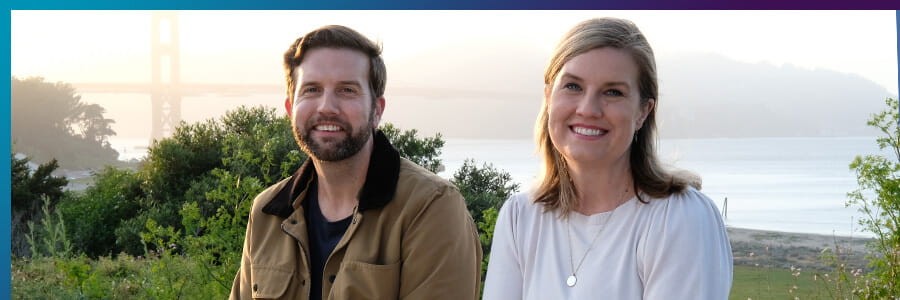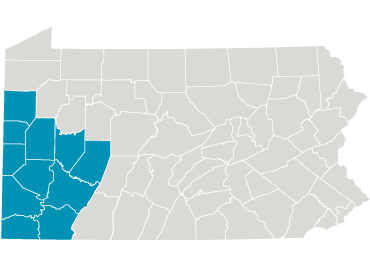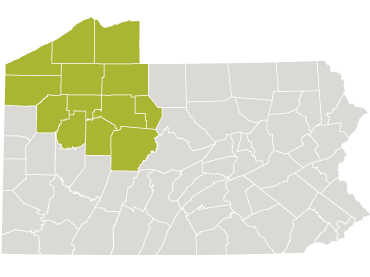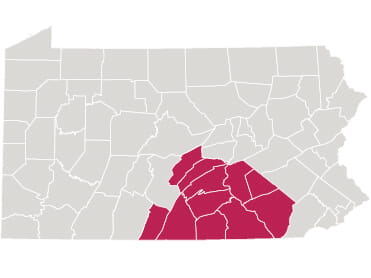David has two older sisters, Mara and Suzanne. And in David's time of need, they were there for him.
David was diagnosed with autoimmune hepatitis in college. For years, he managed the condition with medication. But in his early 30s, his disease morphed into primary sclerosing cholangitis, a chronic liver disease that would lead him to eventually need a liver transplant.
In the fall of 2021, David developed sepsis, and his health began to decline very quickly.
"The sepsis really just dropped me off a cliff," he says. "It was that quick of a deterioration."
Over the next several months, David gained 75 pounds of water weight. He couldn't sleep, struggled with severe leg cramps, and became jaundiced.
"He went through hell and high water," Suzanne says. "I can't even fathom the pain he was in and what he was going through."
David told his family he would need a liver transplant, and both Mara and Suzanne volunteered to be his living donor.
“Without a doubt, there was no thought about it," Suzanne says. "I just said, 'I will be your donor if you need a donor. I will be there. And, if I'm a match, I'm there and I want to be your donor. And there's a will, there's a way.' There wasn't a question."
Because David lived in California and Suzanne lived in Maryland, they learned about UPMC's Living-Donor Liver Transplant (LDLT) program through their cousin. They then went to Pittsburgh for evaluation.
"When we got to meet everyone, it was almost instantaneous," David says. "My wife and I just looked at each other and were like, 'This is how we want to feel. This is the way we want to be treated and communicated with.' And everyone was so amazing."
Suzanne was approved to become David's living donor, and their procedure was scheduled for April 2022.
By then, David's health had declined to the point where he had to be hospitalized. A few days before the transplant, his wife gave birth to their son.
"I looked in his eyes when he was born, and it was so crazy," David says. "He just looked at me with the most calm eyes, like, 'You're going to be fine. I'm not worried. Don't worry about me, don't worry about mom, you're going to be fine.'"
The day before the transplant, David's sodium levels reached the point where the procedure was in jeopardy. But while David was worried, Suzanne says she had full faith that everything would go well.
"I'm a very positive person," she says. "I try to look on the bright side of a lot of things."
The surgery was successful, rewarding Suzanne's belief. The siblings got to spend time together after the procedure, and it was emotional for both of them.
“To be able to go over and see him was incredible," Suzanne says. "I heard his voice, and I just started crying."
A year after the surgery, David says he is healthy. He is active again, running and playing basketball. He enjoys spending time with his wife and his two young children.
Likewise, Suzanne is doing well with her husband and two kids.
"To think that my transplant went so well and I am where I am today, I can only thank UPMC," David says.
The transplant brought Suzanne and David closer together — they share a "wonderful bond," Suzanne says. Their entire family provided immense support during the entire transplant process.
“She's such an amazing person," David says. "All of my friends love her. Everybody pretty much loves her. She has so much energy and enthusiasm for life and for being a good person."
UPMC considers living-donor transplants a first-line treatment for patients on the transplant waiting list. Living donation saves lives. Because the liver regenerates, a living-donor liver transplant is an option for both donor and recipient.
Suzanne would recommend becoming a living donor to anyone who is considering it, as long as they have the right support behind them.
"What you're going to do for your whoever, it's going to save their life," she says. "It really makes you think about your relationships with people and what really matters in life. So many people get wrapped up in so many different things, and this really, really makes you realize what life is all about."
“As long as you have the support and you can get through it mentally and emotionally, do it."
At UPMC, Life Changing Medicine means helping families.
Find UPMC Transplant Services in the Following Regions





















